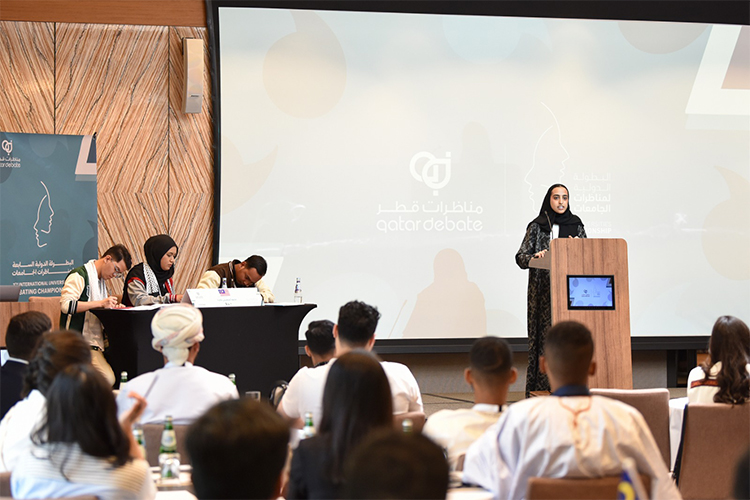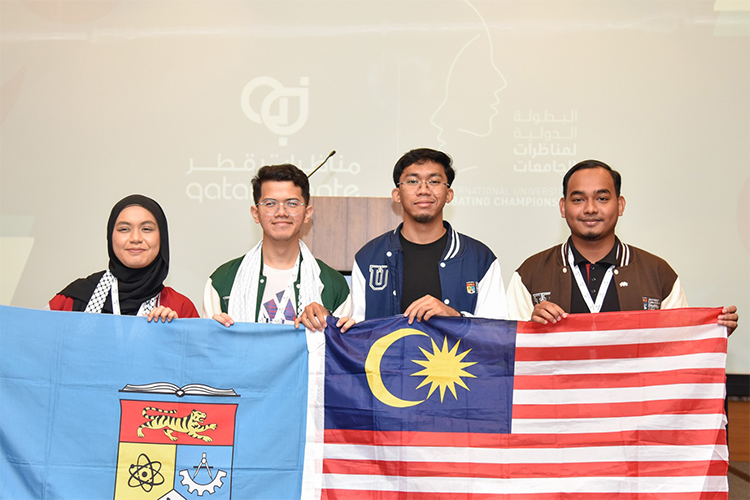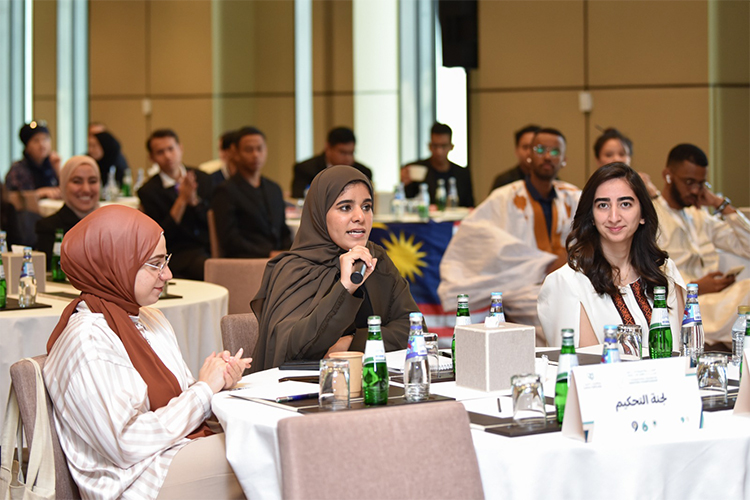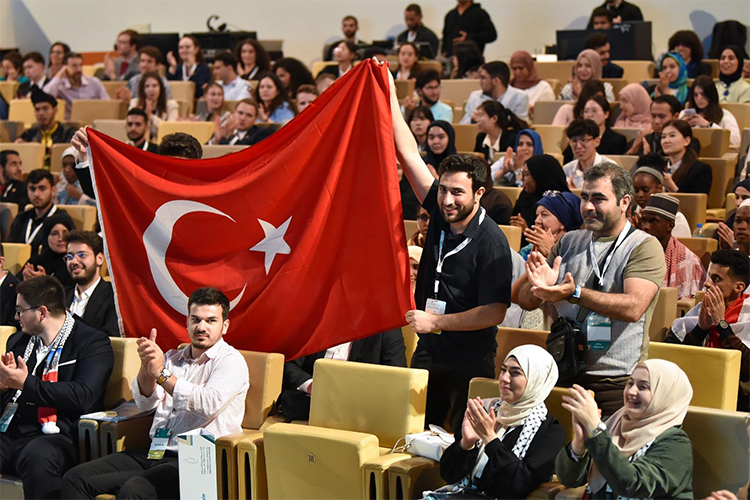The Lebanese University of Arts and Sciences and the Palestinian An-Najah National University have qualified for the final round of the 7th International Universities Debating Championship in the native Arabic speakers’ category. In the non-native Arabic speakers’ category, Türkiye secured the title after two Turkish teams, Fatih Sultan Mehmet University and BoA?aziçi University, advanced to the final round. The winners will be announced at the closing ceremony.
The qualifying rounds saw intense competition between Georgetown University in Qatar and the Palestinian An-Najah National University. Meanwhile, the Lebanese University of Arts and Sciences faced off against Universiti Kebangsaan Malaysia, debating "Making contact with isolated indigenous peoples." Each team presented supporting and opposing arguments to convey their perspectives.
After an intense and close competition, the Lebanese and Palestinian teams secured their places in the finals. They will compete for the title of this year's edition in a public debate at the Al-Mayassa Theater in the Qatar National Convention Center.
Georgetown University in Qatar and Universiti Kebangsaan Malaysia competed for third and fourth place in a heated debate over "doing the minimum requirement of one's work and not expending more time, effort, or enthusiasm than necessary." Both teams demonstrated great competence in dialogue, refuting arguments, presenting evidence, and using precise terminology.
Commenting on the competition, Hawa Al-Jaradi, QatarDebate Center Ambassador to the United Kingdom, expressed her enthusiasm for being part of this year’s judging panel.
“It was my honor to oversee the judging panel for the third and fourth places during this tournament, which featured Georgetown University in Qatar and Universiti Kebangsaan Malaysia. The competition was intense and the debate fascinating, with students demonstrating exceptional skills in argumentation and scientific discussion. With each edition of the competition, we witness remarkable improvements in participant competency, thanks to the dedicated efforts of the training teams, overseen by QatarDebate Center and its global partners, as well as the experience and skills gained in each edition. I also want to applaud the teams for their eagerness to participate in friendly debates as part of their preparation for the championship.”
Regarding the competency of non-native Arabic speaking teams, Al-Jaradi remarked, "We have witnessed remarkable progress in the level of participating teams in the non-native speakers’ category. They have shown increased capability in debating in Arabic, employing simple terminology to discuss various issues raised during the tournament, be it economics, politics, or culture."
Moza Al-Hajri, representative of the Georgetown University team in Qatar, expressed, "We are delighted to have progressed to the advanced stages of the championship and to have had the honor of participating in the semi-finals. Although we were defeated by An-Najah National University, we are pleased that they reached the final. Our achievement of securing second place in the round of 16 with five wins out of six to qualify for the quarter-finals and semi-finals highlights the exceptional skills of our team. We extend our best wishes and hopes for success to everyone."
Al-Hajri further commented, "In the competition for third place against the Universiti Kebangsaan Malaysia team, we encountered a challenging contest. Despite their status as non-native Arabic speakers, they displayed an advanced proficiency in Arabic, highlighting the importance of argumentation and logic over mere language fluency in advancing to the final rounds." She also expressed gratitude to Georgetown University in Qatar and QatarDebate Center for providing an optimal environment for the team's training and success in the field of debate.
Reflecting on the fierce competition for the title among the teams that qualified in the native Arabic speakers’ category, student Imran bin Sulaiman from Universiti Kebangsaan Malaysia remarked, "The competition was intense, and our aim was to secure the title in the non-native Arabic speakers’ category. However, we found ourselves competing in native Arabic speakers’ category, posing a significant challenge, particularly because all other teams consisted of native Arabic speakers. Our round against the Lebanese University of Sciences and Arts team was particularly demanding, as they showcased exceptional fluency in Arabic and strong argumentation skills.”
Addressing the obstacles encountered by his team as non-native speakers, he elaborated, “Residing in a non-Arabic-speaking environment posed a challenge for us. However, we dedicated ourselves to enhancing our skills throughout this tournament and sought to glean insights from the expertise of other participating teams.”
On the third day of the tournament, participating teams seized the opportunity to discover Qatar's tourist and cultural attractions before the championship's conclusion.
The championship will culminate in a ceremony recognizing outstanding teams and speakers, comprising the top three teams from the first category and the top two teams from the second category. Additionally, the ceremony will honor the top ten speakers from the first category and the top five speakers from the second category, acknowledging their exceptional performance and dedication.






